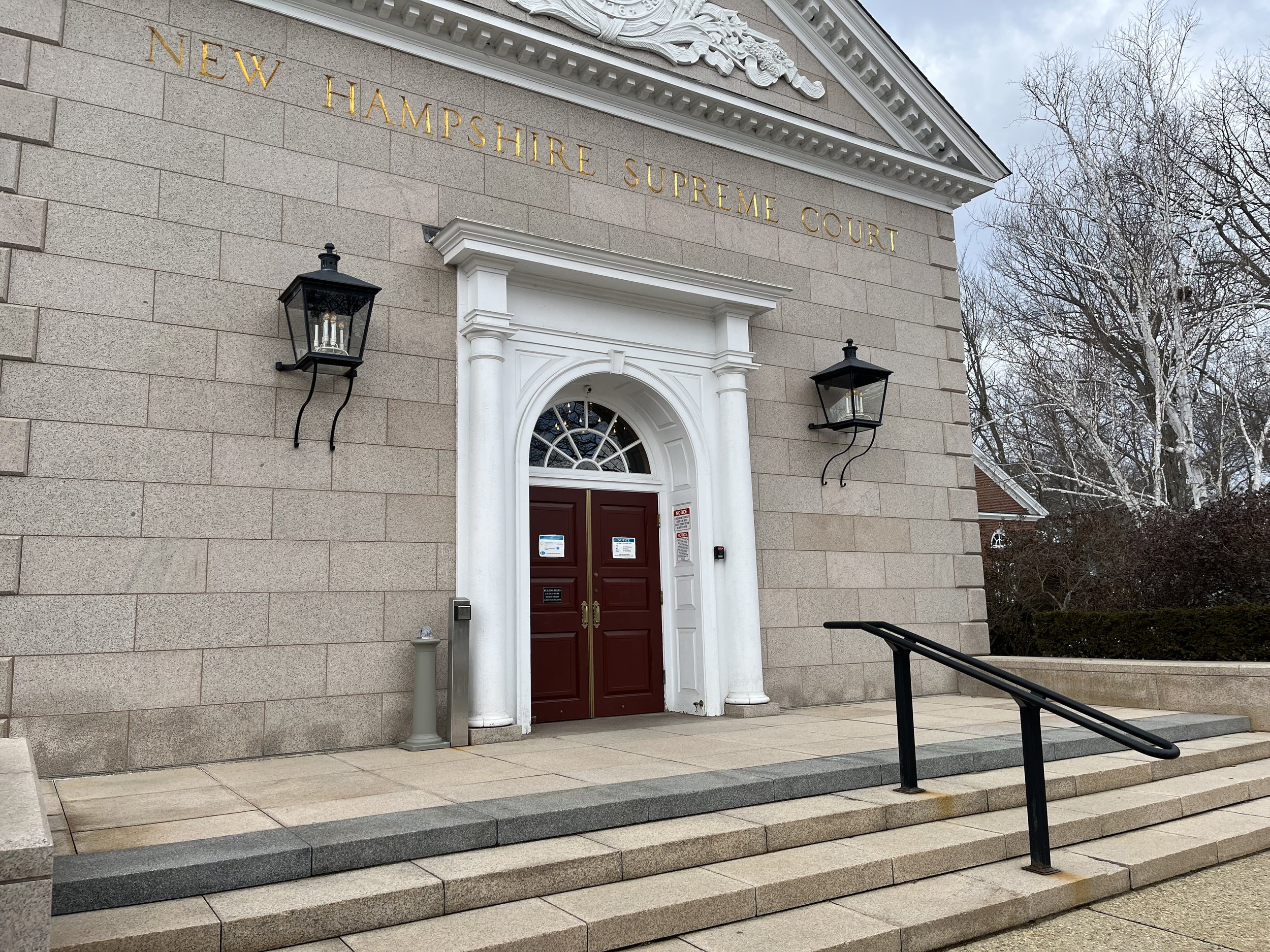By Paul Cuno-Booth, Granite State News Collaborative


The New Hampshire Supreme Court heard arguments Tuesday in a right-to-know case that could have major implications for police transparency in the state.
The case involves one specific public-records request — the ACLU of New Hampshire’s pursuit of materials about a state trooper, Haden Wilber, who was fired in 2021. But it poses a larger question: whether the public ever has a right to view internal police personnel files that document misconduct.
“This case, really, at its core, implicates whether serious — and egregious, here — misconduct by police officers in New Hampshire will be secret or will be accessible to the public,” Gilles Bissonnette, the ACLU of New Hampshire’s legal director, told the court.
The arguments come after several years of increased scrutiny on police in New Hampshire following the murder of George Floyd in 2020, as well as some steps that have led to greater transparency around police misconduct.
That includes the release of the so-called “Laurie List” of officers with potential credibility problems and a pair of state supreme court rulings in 2020 that granted the public greater access to personnel records about police and other public officials.
Wilber, a member of a specialized drug-interdiction unit within State Police, was fired for misconduct arising from a February 2017 vehicle stop. After arresting the driver for allegedly possessing a small amount of heroin, Wilber also charged her with smuggling additional drugs into jail inside her body.
No drugs were found during her 13 days in jail or the invasive body cavity search she was forced to undergo before her release. She later filed a lawsuit that the state settled for more than $200,000.
An internal investigation prompted by that lawsuit found Wilber made numerous missteps during the case and illegally searched the driver’s phone without a warrant, something he admitted to doing on other occasions as well. State Police also determined he lied to internal investigators, which Wilber has denied.
During his argument Tuesday, Bissonnette said most of that information only became public because Wilber chose to appeal his termination to the New Hampshire Personnel Appeals Board, which has released various documents. New Hampshire State Police denied the ACLU’s public-records requests related to Wilber’s disciplinary history.
In addition to documenting the trooper’s actions, the ACLU has said those records could reveal more about how State Police trained and supervised Wilber, as well as the practices of the Mobile Enforcement Team. The ACLU has previously criticized the unit for using minor traffic stops as pretexts to search for drugs.
The ACLU filed a lawsuit in January 2022 seeking those records. A superior court judge sided with the ACLU in May, ordering State Police to turn the files over. The state appealed that order to the state supreme court.
In court Tuesday, Assistant Attorney General Jessica King, representing State Police, argued that police personnel records are completely exempt from public-records requests under state law.
At the heart of the case is how a particular statute about police personnel files, RSA 105:13-b, intersects with New Hampshire’s Right to Know Law, which makes governmental records open to the public with limited exceptions.
RSA 105:13-b lays out the process through which defendants can seek access to potentially relevant information about police witnesses from their personnel files, for use in criminal trials. King argued the law makes police personnel records generally confidential outside of that narrow context, prohibiting disclosure in response to public-records requests.
“The statute says that the personnel file is confidential, except in the enumerated circumstances,” she said.
She said allowing access to those personnel files through a separate channel would defeat the purpose of the statute, by allowing defense attorneys to file public-records requests for personnel information they can’t get through the criminal-court process.
Bissonnette disagreed. He argued the law only applies to criminal trials and does not block disclosure under the Right to Know Law.
The four justices present put a series of technical questions and hypotheticals to both attorneys. Chief Justice Gordon MacDonald, who previously served as New Hampshire’s attorney general, was recused.
Black Lives Matter Manchester and the New Hampshire Union Leader have filed briefs supporting the ACLU, saying the state’s position would reduce transparency and make it harder to hold law enforcement accountable.
The case comes less than three years after the state supreme court significantly expanded access to personnel records about police officers and other public employees. In a pair of rulings in 2020, the court held that such records are subject to right-to-know requests when they concern matters of public interest that outweigh employee privacy considerations.
The decisions overturned a quarter-century-old precedent that had categorically shielded personnel records from public view.
Speaking in court Tuesday, Bissonnette noted that those decisions don’t give the public unrestricted access to the personnel files. The current balancing test, he said, would likely grant access to an investigation finding egregious on-the-job misconduct by a public official — but not, for example, the results of a psychological exam given as part of the hiring process.
The state’s interpretation in the Wilber case “would give police special privacy rights that no other public employee has,” he said.
These articles are being shared by partners in The Granite State News Collaborative. For more information visit collaborativenh.org.
